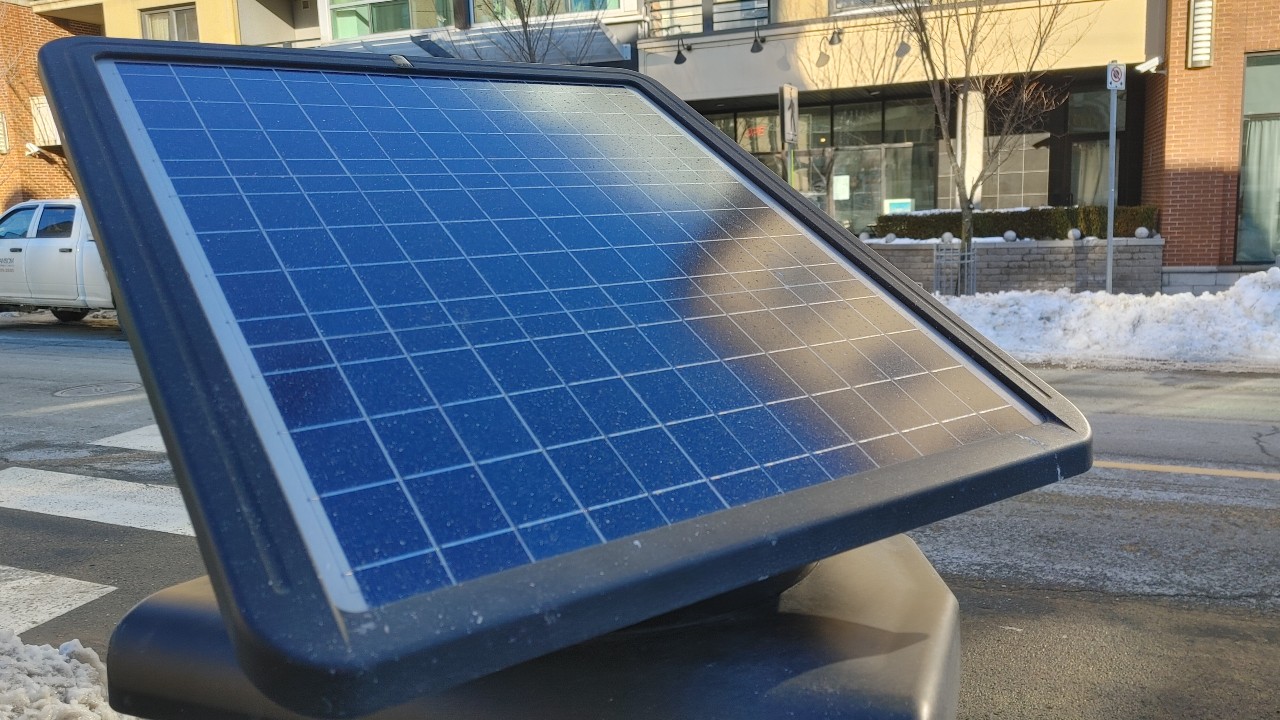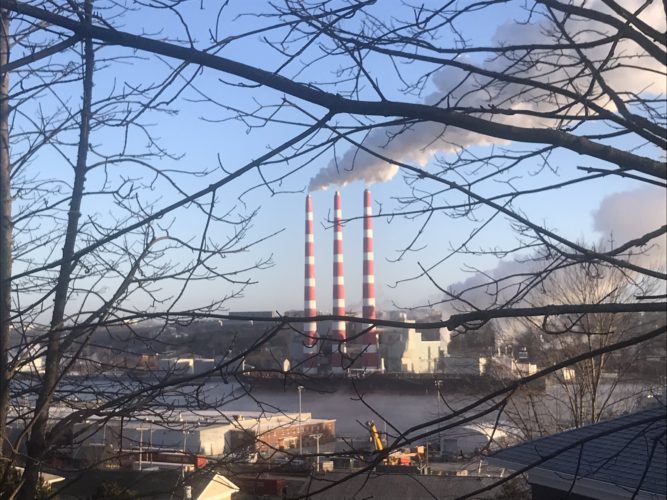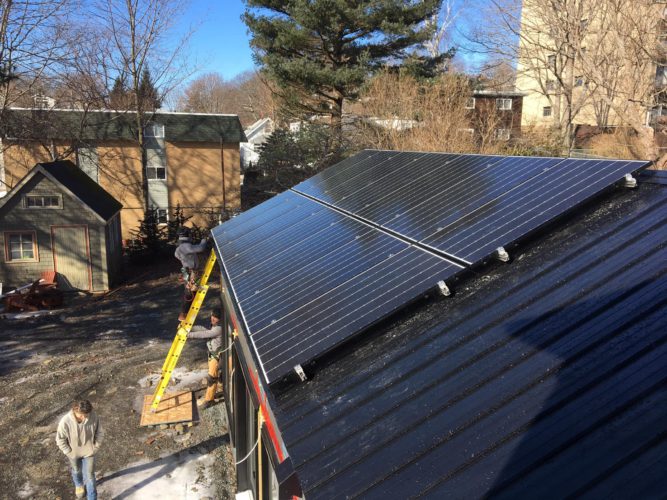Local and national groups slam Nova Scotia Power’s solar fee proposal
NSP says change is necessary, but late Tuesday said it would delay the plan for a year

caption
A solar-powered parking station on Barrington street.There is widespread condemnation of a proposal by Nova Scotia Power to charge a fee to customers who set up solar panels to generate their own electricity.
“I want to make this very clear. The solar rate change is egregious,” said Gretchen Fitzgerald, national programs director at Sierra Club Canada, an environmental advocacy group. “We have no choice but to start looking at some alternatives to Nova Scotia Power for power generation.”
The Jan. 27 proposal would see net-metering customers, mostly homeowners who have solar cells on their roofs, pay eight dollars per kilowatt per month based on their home’s installed capacity.
“What Nova Scotia Power is trying to do is edge out the competition. The more that Nova Scotia Power can own that power generation, the greater their assets are so I think it’s a power play, literally,” said Fitzgerald.
“The amount of opposition to this has been wonderful to see and the amount of support for our solar industry and individual communities to generate their own power has also been really cool to see in the last few days.”
The system access charge announcement follows the delay of Trenton 5’s closure, a coal power generation unit in Trenton, by one year to 2024.
“I’m sitting here looking across at (Tuft’s Cove generating plant in Dartmouth) burning fossil fuels right now,” laughs Fitzgerald. “It’s still a pretty big part of our electricity grid and any kind of delay, in our opinion, is completely unacceptable.”

caption
The view of Tufts Cove smokestacks from a home in Dartmouth.Launched in December 2020, the Sierra Club’s Beyond Coal Atlantic project works to move Atlantic Canada away from coal as quickly as possible while transitioning to renewable energy.
“It just seems inexplicable to me that Nova Scotia Power is somehow saying that (solar users are) costing other ratepayers money instead of installing more panels,” said Fitzgerald.
According to Solar Nova Scotia, a local non-profit, the proposal will “be a fatal blow to many of (their) 40 corporate members,” in addition to the installation companies “that employ hundreds of Nova Scotians in the solar industry.”
Political figures have joined the uproar.
Halifax Regional Municipality District 5 Coun. Sam Austin was shocked by the proposal.
“If my pitch to my wife was, ‘Let’s buy solar, it’ll pay for itself in 30 years,’ it’d be a much harder sell now than the payback we have under the old system,” said Austin, who finished installing his solar panels one week before the proposal.
“There’s a major rate increase that needs to happen (in order for the proposal to take place) and if rates yank the rug out from under the solar industry, that will become impossible.”
Conservative Premier Tim Houston said that the government would participate during the Nova Scotia Utility and Review Board’s public hearing to argue against the rate hike.
On Tuesday, the utility bent a little under the pressure, saying they would delay their proposal by a year “in the interests of insuring that the right conversations can take place.”
On Twitter, Nova Scotia Power CEO Peter Gregg said the company regretted that conversations with the solar industry did not take place before their proposal was made, but insisted that the system had to change, since the “net metering system as it is set up now isn’t working for all Nova Scotians.”
“I think what we’re seeing now is really the chickens coming home to roost from the previous government, politically influencing regulatory processes and basically trying to avoid responsibility from the controversy of a rate increase in their current economy,” said Brendan Haley.
Haley is the policy director for Efficiency Canada, a research and advocacy organization, and was involved with the creation of Efficiency Nova Scotia, which works to conserve energy in the province.
“I think there has to be some consideration of the assumptions for energy efficiency because the proposal is assuming that energy efficiency projects are flat or decreasing. That’s not a realistic assumption,” said Haley.

caption
Sam Austin’s solar panels were installed in early January 2022.“They’re proposing, essentially, an increase without proof of great results. The last plan did not include today’s levels of carbon pricing and they were criticized for not having realistic assumptions of the increase of carbon by certain elements, which impacts energy efficiency more directly.”
“The big issue in my mind is that we need to figure out a new framework where the premier can stop playing politics with rates and where people can feel that there’s some accountability and some societal benefit for regulating the utility,” said Haley.

